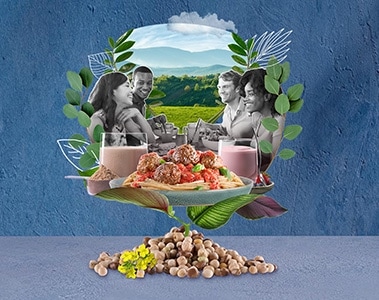
Keep the flavor, hold the alcohol
10 Jan 2024
BrauBeviale, one of the world’s largest beverage events, is coming up soon from November 12-14. It’s a much-anticipated event for my team, and each year I’m always curious about which trends will steal the show. I asked Marlos Fernandes, a DSM brewmaster in North America, to give us a sneak peek at what people will be talking about and tasting …
Globe-trotting brewmaster Marlos Fernandes joined DSM in 2012, at first working in Brazil and now living in the US supporting breweries in North America. He began his career at a multinational brewing company and earned his brewmaster designation from the Siebel Institute (Chicago) and Döemans Academy (Munich).
“My main objective is to guarantee great quality beer for our customers.”
Marlos Fernandes: I truly believe there’s no better job out there – it involves passion, patience and inspiration. And it’s traditional yet innovative at the same time.
Here in the US, the Craft Beer market continues to grow every year, with more than 7,000 breweries nowadays. Given the size of the market and variations per state, it’s not easy to pick out trends. But I do see two that are generating buzz right now: Brut IPAs and Fruit Beers. IPAs continue to be an important segment of the market, and the Brut style offers a lighter take on this. Adding fruit - and sometimes vegetables! – to beer is something consumers are asking for and breweries are experimenting with, which is exciting.
I’m looking forward to sharing some new Fruit Beer recipes at BrauBeviale. It’s one of the best parts of my job - showing customers how to innovate in a sustainable way.
Marlos Fernandes: It’s becoming a requirement for doing business, actually. Beer, advertised as sustainable, is more attractive to consumers – we know this from our research. We also know that climate change will likely impact our industry; for example, in quality and availability of raw materials. So, sustainability is high on the collective agenda, so to speak, and DSM works as a partner to brewers to help them develop sustainable brewing practices. Enzymes enable brewers to deliver sustainable and healthy solutions for the planet and society.
Marlos Fernandes: One of the best things about enzymes, in my view, is how easy they are to use. Enzymes are natural proteins (not chemicals, which is a common misconception) and can be added to existing production processes simply and quickly.
For developing new recipes, such as Brut IPA, amylglucosidase (Amigase® Mega L) will help the brewer to dry out their beer, reaching their desired attenuation levels during the Fermentation.
Marlos Fernandes: The brewing industry is one of the most innovative industries, and the fruit beer concept is an exciting development that consumers can enjoy today. Brewers are introducing a wide range of fruit beer concepts, from citrus varieties to bold, cherry-flavored brews to a milder apricot beer that caters to the need for low-alcohol content fruit beers – often marketed as favorite summer beverages.
This concept is actually a great example of the benefits that enzymes can deliver. Fruits and vegetables naturally contain pectin, and pectin is a source of haze in Fruit Beer. It can form a gel in the presence of alcohol causing beer filtration issues. An effective solution is Rapidase® Press, which is a classical pectinase containing a variety of enzyme activities required for smooth Fruit Beer brewing. These activities break down the pectin structure in fruits and vegetables, reducing viscosity and pectin haze and contributing to a better filtration performance.
At BrauBeviale, our team of brewmasters will be presenting two examples of beers that highlight how we could help develop recipes using this solution:
a KÖLSCH brewed with Passion Fruit and an AMERICAN PALE ALE with Orange. Both are delicious – come try for yourself!
Our experts are always ready to help you
03 November 2019

10 Jan 2024


